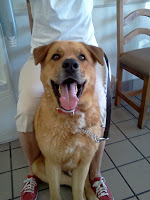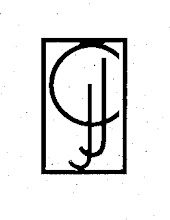It’s an unusual Father’s Day this year at Lull HQ. Our grandfathers are long gone; we no longer have fathers or father figures left, and we no longer have any furred “girls” around to honor their male human with a card and (usually) a CD. Father’s Day isn’t meaningless, but it’s not an active holiday for us—we’re under no obligation to do anything. It feels like the perfect occasion to tell you about Sidney…My father and I had grown apart emotionally as well as geographically over the years. What we knew of each other was based on interactions from my childhood, B.D. (Before the Divorce). I hoped to remedy this by moving to the Bluegrass State.
On one of our visits with my father last spring, prior to our move, my husband and I spent time doing the physical labor my father was no longer capable of doing—raking, organizing the barn, general cleaning. One of my duties was to prepare the ground-level birdbaths and garden drinking elements for use. This meant weeding, pulling muck out of the birdbaths, scraping algae off the decorative stones, making it all shiny and new again for the avian populations of my father’s backyard.

What I didn’t realize when I accepted the task was that it was a pet project and my father wanted it done a particular way—that is to say, HIS way. So I positioned a chair near the action and helped my father into it. From the chair, my father would be close enough to supervise my every move, but not so close that he’d get sprayed by the hose (unless, of course, I took aim at him). As his instructions grew more detailed and his corrections of my work mounted, taking aim at him was beginning to look like a satisfying option.
That’s when Sidney (or maybe S
ydney) popped into our lives. I was scooping stones out of the baths and throwing them into the driveway. On one was the little gastropod. I gasped at the thought of a different outcome, of the snail being crushed by the stones. All tension slipped away at this new development. We now had a dual purpose: clean
and protect.
You might think that protecting a snail is easy. “Just keep an eye on him,” you advise. “He won’t go far—snails are slow.”
But you’d be wrong, at least where Sidney was concerned.
Sidney was focused and FAST. One moment he was resting on a rock, the next he was stretched across two rocks—tasting algae, testing surfaces, conducting who-knows-what exploratory exercises. He was a fascinating snippet of a creature who appeared to be fascinated by everything around him. He exuded personality.
I could almost hear him “Hrrmph” each time I wrangled him from going too far. I didn’t want Sidney wandering into the driveway, facing certain death by automobile. I intended to return him to the mini-wetlands environment from which he’d come, but not before I had the area cleaned and replenished with fresh water.
It was a hot day and my father started worrying about the snail getting overheated. “Have you checked on Sidney lately? Is he okay?” asked my father.
Periodically, I created tiny pools of water next to my charge so he could drink (he didn’t) and sprinkled water over him to cool him off, which spurred him to scoot away from me (indignantly, I thought). Had he been a dog, he would have shaken his little body at that point and splattered water right back at me.
I struck up a conversation with him. That is, I talked to Sidney and he stretched his head in my direction, as if he were listening. (I know. More likely he was thinking, What the Hell?) I told him he needed to keep hydrated because my father was getting on my case about his welfare. And I could take only so many orders from the old man in that heat.
In truth, Sidney had already taken some of the heat off of me. My father had become more interested in the snail than in supervising me. It was looking like Sidney had clinched his future as a yard pet.
Once I’d made Sidney’s h

ome habitable again, I placed him on the edge of the pool. He couldn’t get away from it fast enough. I repeated my effort, this time situating him closer to the water. He stretched out his neck, surveyed the liquid, and took a long drink. I offered a leaf as a way out of the pool. Instead, he took a bite from it.
“What’s he doing now?” asked my father.
“He’s looking at me again,” I answered. Then Sidney disappeared into the foliage as mysteriously as he had materialized in the first place.
We never saw Sidney again, but he became part of my father’s storytelling repertoire in the final months of his life and a precious shared experience between us.
Note: The photos of Sidney don’t show his true colors. The dark “veins” on his body were purple, and his shell had a chartreuse glow to it. He was quite striking.
 The lists I keep on Lull tell an abridged story. My reading extends beyond the books and magazines listed.
The lists I keep on Lull tell an abridged story. My reading extends beyond the books and magazines listed.










































